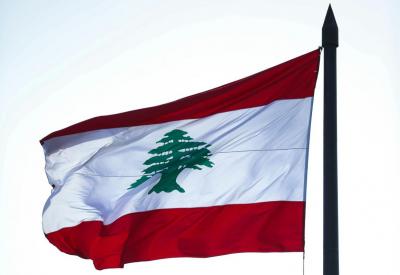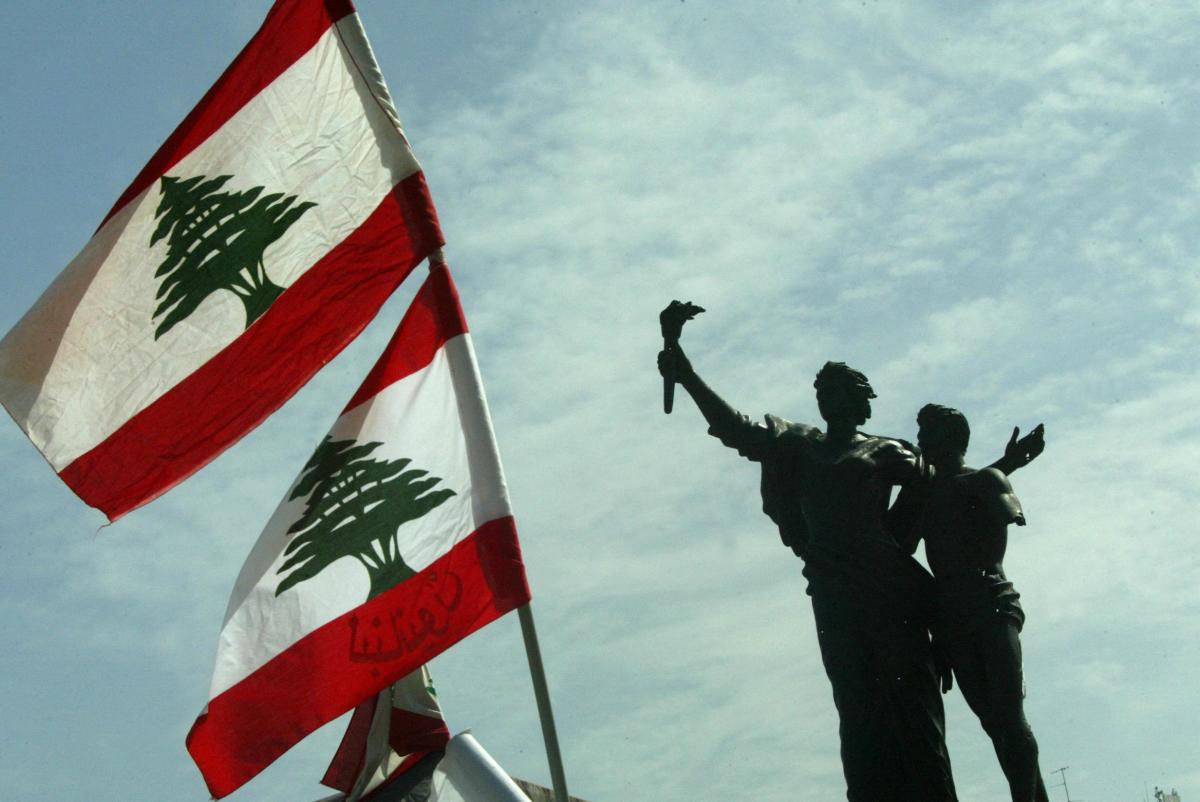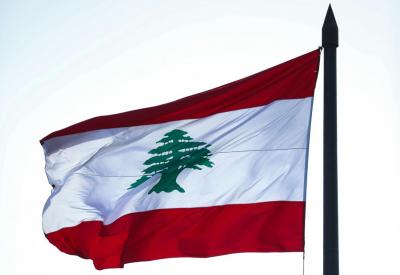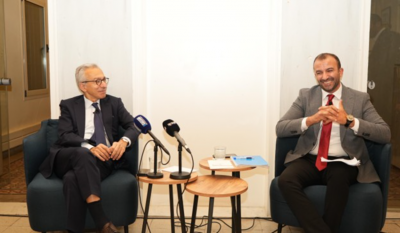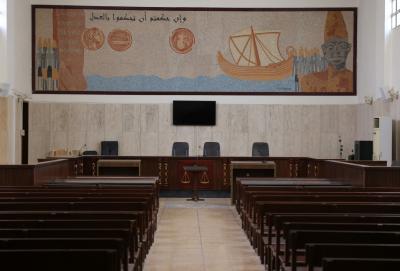We publish here chapter 10 of the book "Lebanon: Between the Federalism of the People and the Federalism of the Leaders," by Dr. Nimer Freiha, former president of the Center for Educational Research and Development, (Dar Saer Al-Mashreq, 2023). This chapter focuses on Lebanon and its version of democracy.
A- Separation of Powers
Separation of powers is an indicator of the transparency and order of the government. This separation is clearly stated in the texts of a democratic system in which powers are integrated and do not overlap. That is, politicians have no right to interfere in the affairs of the judiciary or to request the implementation of a request. Judges also have no right to interfere in the work of the legislator, and the executive branch has no right to dominate the judicial and legislative branches. This is known in English as "checks and balances."
In a non-democratic system, powers overlap, and Lebanon provides a model of this situation, despite the fact that the constitution stipulates the separation of powers.
Why?
It lies in the political culture, defined as the way the ruling authority applies the constitution and laws, its methods of dealing with institutions, and the way its members deal with each other and with citizens. For example, when a representative goes to a government institution to mediate on behalf of one of his supporters who violates the law, and takes action to remove the charge against him or any misdemeanor he has committed, he is acting as an adversary of the legislative authority, interfering in the affairs of the judiciary and preventing it from enforcing the law. If this were to occur in a country that truly respects the separation of powers, the representative's interference would lead to his removal. Meanwhile, in Lebanon, taxes are evaded from the tyrant's children whenever he contributes to remove violations and withhold taxes from the accounts of the State institutions.
We have provided a simple example to demonstrate how a representative of one authority interferes with another. Furthermore, our representatives and ministers see themselves above the law, and consider the mere appearance before a judge, even as a witness, a personal insult and a "diminution" of their authority! Ministers and representatives have proven this, especially after the port explosion in 2020. When a political system accepts this practice, it can only be classified among the old feudal personalist systems that still exist in underdeveloped countries, regardless of constitutional texts, which are merely ink on paper.
Modern political systems effectively separate powers, both in text and in practice. This is not the case in Lebanon, where the legislator holds a position in the executive branch as a minister, thus combining both powers. Furthermore, we find the judiciary under the control of both the legislative and executive branches, subject to the whims of their members. Developed countries have eliminated such practices. If we compare these two systems: one that practices the separation of powers and one that falsely claims to do so, we see a significant difference between those who consider themselves in control of the people's fate and those who consider themselves responsible for an institution that protects people's rights.
B- Practicing Democracy
The Lebanese Constitution stipulates that the system of government in Lebanon is "democratic." "Lebanon is a democratic parliamentary republic..." (Article C of the Preamble to the Constitution), and "The people are the source of authority and possess sovereignty, which they exercise through constitutional institutions" (Article D of the Preamble to the Constitution). The ruling class also claims this in its speeches and media interviews, but it does not implement the other constitutional provisions that make these two articles effective and influential in political life and decision-making.
Just as a reminder, the term "democracy" is Greek and means "rule of the people," meaning that power is in the hands of the people and is exercised through those they elect as their representatives in Parliament and other state institutions. Therefore, the role of those they elect, is to convey their voices and achieve their goals during the decision-making process, not to lead them and turn them into small, subservient subjects. Democracy is based on three fundamental principles: equality, freedom, and justice. When one of these is violated, it is no longer democratic at all. In Lebanon, the concept of democracy has been conflated with another concept, namely "agreement or understanding," thus becoming "consensual democracy." What do the representatives of the Lebanese people agree on? On the division of positions and financial shares? Or on the elimination of one or more democratic principles, such as practicing half justice, a quarter freedom, and no equality? Or does this consensual democracy stem from the proverb "Equality in injustice is rule for the society"? What does this democracy of ours have to do with true democracy, in which the people are the decision-makers, able to hold any official accountable, dismiss them, and imprison them if they commit a crime? Our political history, from independence to the present, has never witnessed a perpetrator being held accountable or punished. So how can we defend such a paper democracy? American researcher Lily Mio, who visited Lebanon and conducted field research in the early 1970s on the events of 1958, concluded that the system of government in Lebanon is a sectarian democracy, or a Confessional Democracy, because the sects peacefully share positions and quotas among themselves during times of peace, and compete with each other during times of crisis and war. If Lebanese democracy were truly democratic, this (neutral) foreign researcher would not have labeled it sectarian, because such a concept does not exist in political science. Despite this, combining sectarianism with democracy creates no acceptable product for these two elements, and the long Lebanese experience is the best evidence of this.
We are, therefore, claiming what we do not have and what we do not live, because democracy is also a way of life in the political world, a way of exercising rights and duties, the role of each official in the government (the three branches of government), and the application of democratic principles to the people and by the people. Perhaps this is what most Lebanese lack in their understanding of democracy and its practice. The citizen must live in a democracy, and the elected must ensure providing its components for him. Otherwise, this expression should be deleted from our political lexicon.
"Leadership" and its Concept of Authority
Leadership in Lebanon does not implicitly recognize any authority, whether democratic or non-democratic, but rather views it as if it exists to serve it. This conviction stems from the leader's view of the person holding the position, not the institution itself. His view of the person in a position of authority is based on the assumption that any other is from a lower social background than the leader's, or that the leader appointed them to their position, and therefore they must obey him or at least not dare refuse his request.
When the principle of separation of powers is violated, there is no need to enumerate the consequences of this on the level of the functioning of institutions that are supposed to operate within democratic frameworks, just as it is for that leader to be tried before a military court for losing a major battle. When asked about losing the battle, he replied, "There were several reasons behind it, the first of which was running out of ammunition." Before he could say "the second," the judge stopped him, because this first reason was sufficient to explain the loss.
There is no harm in returning to democracy and implementing it in the opinion of the most important intellectual authority of the twentieth century Robert Dahl, the American political philosopher who believes that there are two types of political systems that have historically implemented democracy: the ancient city-state and the modern nation-state. The former was a direct democracy, while the latter is a representative democracy (Dahl, 1982, p. 4 & 9). We belong to neither of these two types. Whatever members of the political establishment say about democracy in Lebanon, their words fall within rhetorical bluster designed to beautify the image of the decay of the existing system. What is happening in Lebanon offers no indication of the existence of democracy as a system and practice, or as a people and rulers.
C- The Reality as lived by the People
We, as Lebanese, have been living in a vicious cycle since the founding of this nation. However, we do not accept a complete and comprehensive solution to our critical situation, which constantly surprises us every twenty or thirty years.
Our fathers and grandfathers reproduced our generation and those before us as if we were limited in knowledge, understanding, and vision. This has brought many tragedies, as each generation adopted the legacies of the previous generation, including improvisation, irresponsibility, and hatred. Many have sought to ambush those they consider enemies in order to exact revenge at the appropriate time, even if they enlist to help, strangers to the country and the society. This is clear evidence that our generations have stagnated in their historical place without significantly changing our mentality and way of thinking. Intellectual and political achievements of a people like ours, are questionable even decades later. Sometimes a country emerges, grows, and develops in half a century, like Singapore. How can we, thousands of years later, still live in the Middle Ages, with our mentality and convictions, both related to each other as individuals and to our country as a unifying geography for us and those who govern us?
Are we applying what Mark Twain once said: "Everyone talks about politics, but no one understands it?"
Are we still living in the era of Twain, where we talk about politics and adopt extreme positions based on it, while only understanding the surface of it and not practicing it well?
Do we want to become politically "civilized" like other peoples of advanced societies, or do we prefer to remain paralyzed in will, limited in thought, vision, and ambition, relinquishing our right to decision-making and sovereignty to leaders we have appointed as gods over us and over the future of our generations?
Is it healthy for the role of the people to shift from being active to being passive, especially when the action is against the interests of society as a whole?
These questions are not merely a personal opinion; they suggest a conclusion about what has happened over a period of time extending from the Ottoman occupation to the present day. If we had overcome that state, we would today be equipped with a wealth of political knowledge and advanced intellectual analytical skills, enabling us to discover the truth about matters, address them, and formulate positions around them that are consistent with the transparency we aspire to in political practice in our country. Consequently, we would have avoided many of the political crises we are experiencing, not because of flawed laws, but because of our deliberate failure to implement them. There is also a painful reality in the political landscape, which is the result of the educated language of leaders who are unmatched in knowledge and learning, yet who obey their dictates and are dedicated to defending them by harnessing their intellectual capabilities and scientific energies. What drives this group to subservience if they have narrow personal interests that they seek to achieve by joining a leader or a party?
Please post your comments on:
[email protected]
 Politics
Politics
